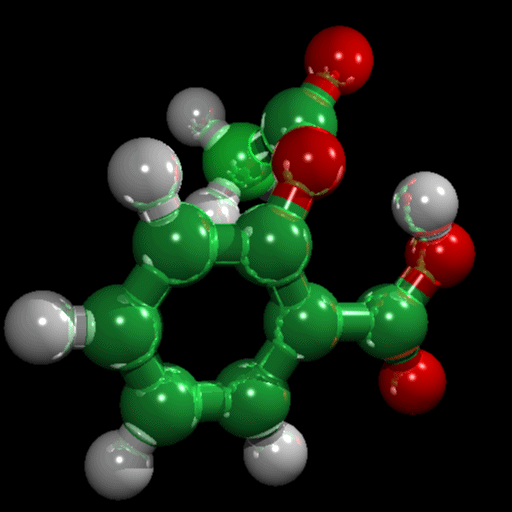 Approximately 8 billion Aspirin tablets are taken per year for a variety of reasons including:
Approximately 8 billion Aspirin tablets are taken per year for a variety of reasons including:
- Inflammation
- headaches
- pain
- fever
- preventing heart attacks
- arthritis
As far back as the fifth century B.C. a bitter  powder made from willow tree bark has been used to ease aches and pains. The first person to write about this was Hippocrates. In the 1700's Reverend Edmond Stone noticed the abilities of willow to cure fevers with aches, and he wrote about it. Early scientists only knew that the willow bark was bitter and good for fever and pain because of a chemical called salicin (discovered in 1829). (picture of the willow to the left)
powder made from willow tree bark has been used to ease aches and pains. The first person to write about this was Hippocrates. In the 1700's Reverend Edmond Stone noticed the abilities of willow to cure fevers with aches, and he wrote about it. Early scientists only knew that the willow bark was bitter and good for fever and pain because of a chemical called salicin (discovered in 1829). (picture of the willow to the left)
Salicin is an acid that is very rough on the stomach lining causes a great deal of problems. As a result a chemist Felix Hoffmann who worked for .JPG)
 ASA is made of 8 Hydrogen (white), 9 Carbon (green), and 4 Oxygen (red). The chemical formula is C9H8O4, and it is a complex made up of acetic acid and salicylic acid.
ASA is made of 8 Hydrogen (white), 9 Carbon (green), and 4 Oxygen (red). The chemical formula is C9H8O4, and it is a complex made up of acetic acid and salicylic acid.
Why there are so many warnings about not taking excessive aspirin:
 when your in pain. In your stomach, it is produced constantly so that your body keeps up with the rebuilding of the stomach lining, this keeps the lining thick which is what protects the rest of your body from your stomach acid. To add insult to injury, Aspirin is an acid, so along with weakening your stomach lining over time, it can also cause your stomach lining to break down leading to some serious stomach problems. Prostaglandins aids with blood clotting, so by preventing it from being made, blood clotting slows down It can prevent heart attacks, but can als cause serious injuries to bleed longer.
when your in pain. In your stomach, it is produced constantly so that your body keeps up with the rebuilding of the stomach lining, this keeps the lining thick which is what protects the rest of your body from your stomach acid. To add insult to injury, Aspirin is an acid, so along with weakening your stomach lining over time, it can also cause your stomach lining to break down leading to some serious stomach problems. Prostaglandins aids with blood clotting, so by preventing it from being made, blood clotting slows down It can prevent heart attacks, but can als cause serious injuries to bleed longer. 